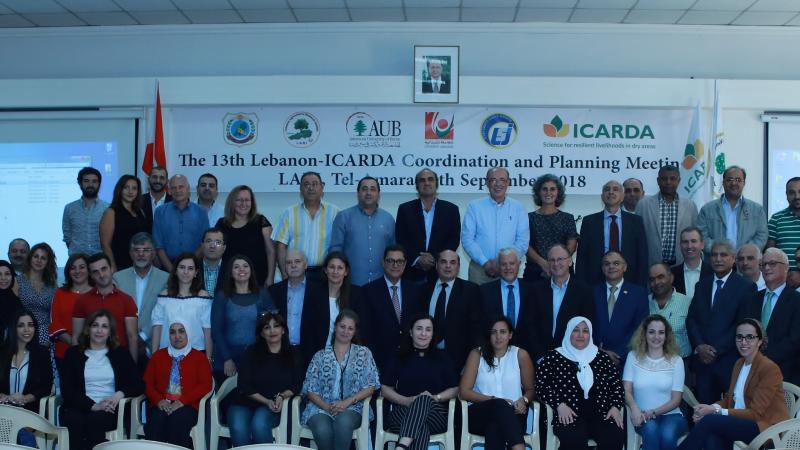Strengthening ICARDA-Lebanon ties

Bekaa Valley, Lebanon – ICARDA and LARI, the Lebanese Agricultural Research Institute, which is part of the Ministry of Agriculture, met to take stock of this year’s achievements and set priorities for next year.
The meeting took place at LARI’s Tel Amara Station. Representatives from governments, donor agencies, universities, and research institutions joined the meeting.
Three working groups discussed water pollution, wastewater treatment in the Litani River Basin, flood management in North Bekaa, wheat and barley value chains, and hydroponic experiments to produce forage for Awassi sheep. The groups also explored the possibility of working on rangeland management, targeting hot spots of land degradation.
“Our longstanding partnerships with LARI is the foundation for shaping science-based solutions that can create lasting impact,” said Aly Abousabaa, director general of ICARDA. “Together, we are developing new technology to improve food and nutritional security in Lebanon. In 2019, we should explore new ways of transferring knowledge and bringing solutions to decision makers.”
Representatives from the World Bank and the Spanish government emphasized the urgency of addressing challenges rising from the pollution of Litani River. The river used to be a major source for water supply, irrigation and hydroelectricity not only in southern Lebanon for the entire country.
“In the past 20 years, the Litani River has become polluted from industrialization and unregulated use of pesticides. This has caused serious environmental issues,” said Hassan Machlab, ICARDA’s country representative for Lebanon. “We are developing interventions to reduce pollution and reuse wastewater for farming.”
Regional challenges
Participants also discussed specific challenges facing the region and the importance of contributing to the reconstruction of the agricultural sector in Syria. Lebanon is currently hosting more than one million refugees from Syria. Their presence has put added pressure on natural resources. The effects of climate change are also threatening food and nutritional security in the region that relies heavily on food import.
“There is a need to position the agricultural sector as a pillar of economic development. We need a multi-pronged approach to improve the agricultural sector. We need improved research cooperation, and policy changes to increase incentives for investment,” explained Rabih Muhtar, dean of Faculty of Agricultural and Food Sciences at the American University of Beirut.
“In order to make food security a national priority, we need the cooperation of stakeholders outside of the agriculture sector as well,” Muhtar added.
